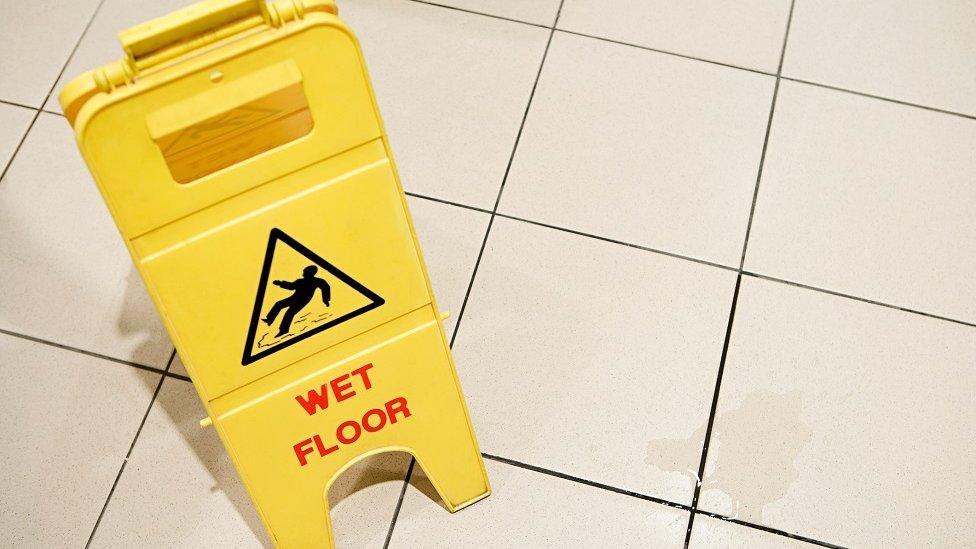Edinburgh nurse receives compensation for wet floor injury
- Published

The court heard that cleaners failed to put out signs warning of a wet floor
A nurse who developed a debilitating health condition after slipping on a wet floor has been awarded almost £50,000 compensation.
Kathleen Ann McLeish, 60, broke her wrist when she fell while working at Edinburgh Royal Infirmary in June 2011.
The Court of Session heard that cleaners failed to put down signs warning of the wet floor.
Ms McLeish later developed a condition called complex regional pain syndrome (CRPS) in her wrist.
The court was told that it caused her "constant pain and disability".
The experienced accident and emergency nurse is now unable to swim or play the piano and has difficulties driving.
And as a consequence of the syndrome, Ms McLeish has become depressed and put on weight.
The court was told she was prescribed medication for her depression and had to be signed off work in a bid to recover.
On Friday, in a written judgement, external issued at the court in Edinburgh, judge Lord Mulholland ordered Ms McLeish's employers - NHS Lothian - to pay her £48,206.
'Affected her confidence'
In it, Lord Mulholland said Ms McLeish was also unable to do her job properly.
He wrote: "With regard to her employment she cannot do fine motor tasks such as suturing of any length and does not have the strength to manipulate broken bones back into place or conduct a physical examination which requires her to lift or move limbs.
"The injury has affected her confidence at work and her energy levels are devoted to getting through the working day.
"She does not see friends and family as much as before and is therefore more socially isolated."
The judgement tells of how Ms McLeish, whose address has not been disclosed, is a "very experienced" nurse who has worked at the A&E department at ERI since 1992.
Lord Mulholland ruled that NHS Lothian breached the Workplace (Health, Safety & Welfare) Regulations 1992 in that they did not do enough to prevent the incident.
He wrote: "I therefore conclude that the pursuer received no warning (verbal, signage or visible) that the floor was wet.
"The placement of a wet floor sign would have prevented the pursuer from entering the room or entering it in the manner that she did."